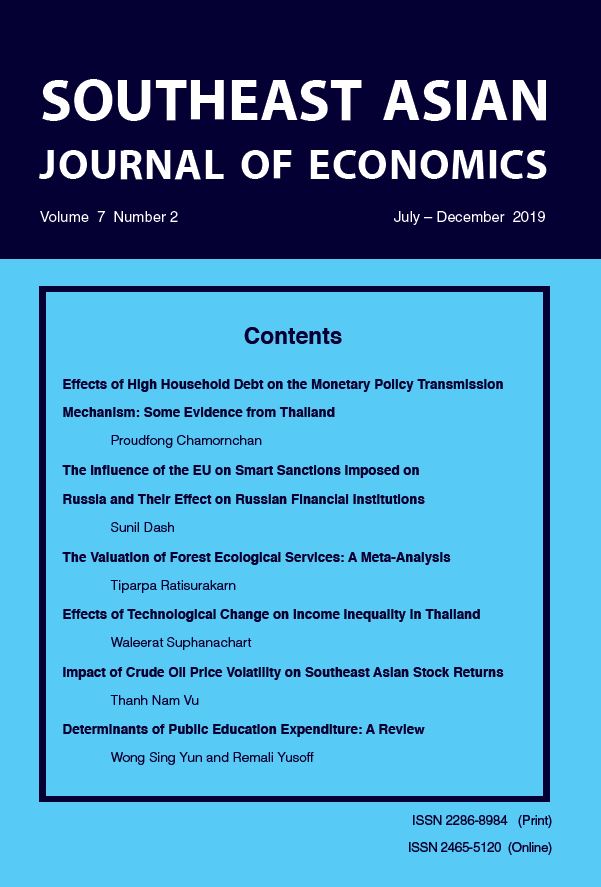The Influence of the EU on Smart Sanctions Imposed on Russia and Their Effect on Russian Financial Institutions
Keywords:
Smart Sanctions, Russian Financial Institutions, Bank Profitability, Regression AnalysesAbstract
Beginning in early 2014, the EU imposed and extended a range of smart sanctions on Russia concerning Russian involvement in destabilizing Ukraine and the violation of Ukraine’s territorial integrity. The EU imposed extra restrictive measures for Russian financial institutions to increase the cost of smart sanctions imposed on Russia. Thus, the paper analyses the impact of smart sanctions on Russian financial institutions. This was done through regression analyses with a dataset that covers 6 sanctioned and 31 non-sanctioned Russian banks. Sanctioned banks are identified by examining the EU’s and the US’s sectoral sanctions lists and those associated with individuals on the
EU’s restrictive measures lists and the specially designated nationals lists of the US. The regression results suggest that after facing smart sanctions, sanctioned banks or banks associated with sanctioned individuals are less profitable compared with non-sanctioned banks. Furthermore, content analysis of annual reports of sanctioned banks reflects the vulnerability of the Russian banking sector towards smart sanctions; which curbed the financial position of Russian banks. Thus, smart sanctions on Russia appears to be “smart” in targeting the Russian financial institutions.
Downloads
Published
How to Cite
Issue
Section
License
The submission of a manuscript implies that the paper is an original work and has not been published elsewhere. The author(s) authorize the journal to reproduce or distribute the paper in printed or other electronic forms.






